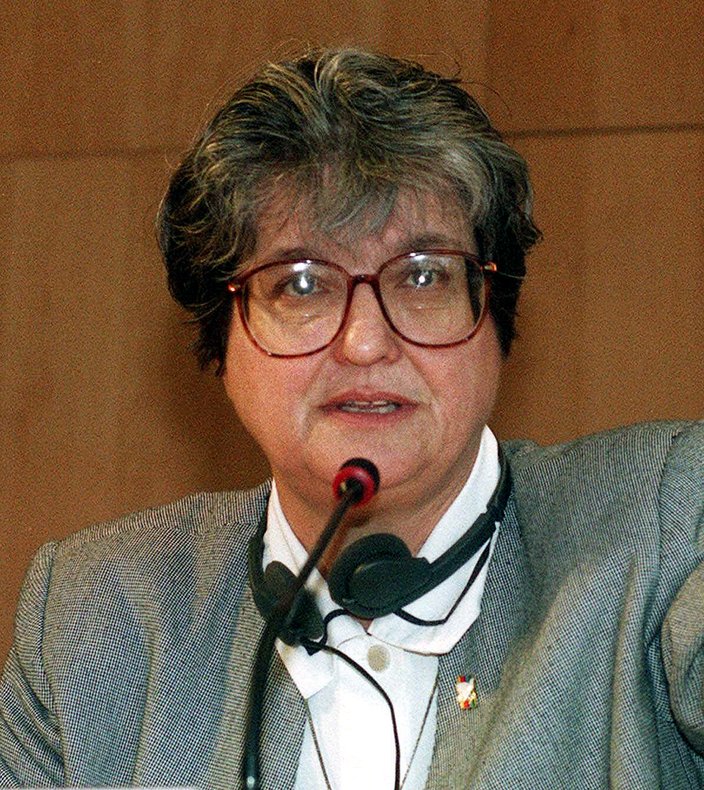
May 11, 2015
Boston Marathon bomber Dzhokhar Tsarnaev told a Roman Catholic nun who is a prominent death penalty opponent that "no one deserves to suffer" as the victims of the deadly 2013 attacks had, the nun testified on Monday.
"He said it emphatically. He said no one deserves to suffer like they did," Sister Helen Prejean said on Monday.
Tsarnaev's trial is entering its final stages. The federal jury that last month found the 21-year-old guilty of killing three people and wounding 264 others will soon begin deliberating whether to sentence him to death or life in prison without possibility of release.
"He said it emphatically. He said no one deserves to suffer like they did," the nun, Sister Helen Prejean said on Monday. "I had every reason to think that he was taking it in and that he was genuinely sorry for what he did."
The two homemade pressure-cooker bombs that ripped through the crowd at the race's crowded finish line on April 15, 2013, caused about 17 people to lose limbs. Through the guilt and sentencing phases of the trial, the jury heard survivors of the bombings and the family and friends of some of those who died discuss the disfiguring injuries that resulted from the blasts.
Prejean, who said she had met with Tsarnaev five times this year, inspired the 1993 book and 1995 film "Dead Man Walking."
The defense rested its case after Prejean's testimony. Tsarnaev did not take the witness stand.
Prosecutors, who are seeking the death penalty, contend that Tsarnaev, an ethnic Chechen, was an adherent of al Qaeda's militant Islamic ideology who mounted the attack "to punish America" for U.S. military campaigns in Muslim lands.
Defense attorneys contend that he was a willing but secondary player in a scheme driven by his 26-year-old brother.
Tamerlan Tsarnaev died on April 19, 2013, following a gunfight with police that ended when Dzhokhar inadvertently ran him over while speeding away from the scene in a stolen vehicle. Hours earlier, the pair had shot a university police officer to death as they prepared to flee Boston.
In eight days of testimony, Tsarnaev's public defenders have called 44 witnesses.
"I walked in the room and I looked at his face and I remembered, 'Oh my God, he's so young.' Which he is," Prejean said. "I sensed he was very respectful, and I felt it was pretty easy to establish a rapport."
Tsarnaev, who had been a college student with poor grades at the time of the attack, has not spoken on his own behalf and is not obligated to take the witness stand.
Last week, defense attorneys called witnesses, including Russian relatives of Tsarnaev who recalled him as a kind, loving child. They said they were fearful when Tamerlan and his mother, Zubeidat Tsarnaeva, turned to militant Islam.
One of Tsarnaev's aunts, 64-year-old Patimat Suleimanova, was so overcome at the sight of her nephew sitting at the defense table in federal court in Boston that she began crying and was unable to testify.
After the defense rested its case, prosecutors called to the stand a Federal Bureau of Investigation agent who oversees the program that determines what level of restrictions federal prisoners face while serving their sentences.
Martin Richard, 8, Chinese exchange student Lu Lingzi, 23, and restaurant manager Krystle Campbell, 29, died in the bombing. The Tsarnaev brothers shot dead Massachusetts Institute of Technology police officer Sean Collier three days later.
During the guilt and sentencing phases of the trial, the jury heard from friends and relatives of all four people killed by the Tsarnaevs, as well as several people who lost limbs when shrapnel from the two pressure-cooker bombs ripped through the crowd of spectators, volunteers and athletes at the marathon.
Prejean, who first met Tsarnaev in March as his trial was getting under way, described first setting eyes on the bomber.
"I walked in the room and I looked at his face and I remembered, 'Oh my God, he's so young.' Which he is," Prejean said. "I sensed he was very respectful, and I felt it was pretty easy to establish a rapport."
